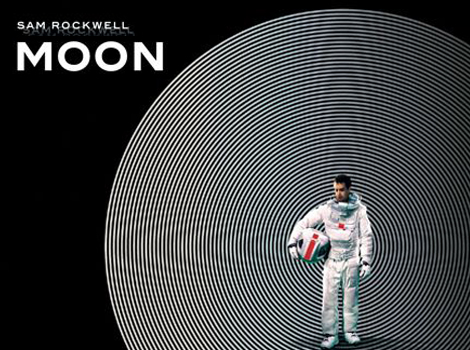
Philosophy. One of the most widely teased college majors and one of the most misunderstood subjects of study. I can't tell you how many times I've heard people dismiss philosophy as something confined to the wondering minds of introverts or the dusty books of stuffy, old academics. Whenever you mention Plato or Aristotle outside of a philosophy class, you're most likely to be looked at either as a hipster with very pretentious choice of reading or as a person who isn't "hip" at all. But that is where our generation is wrong. Plato and Aristotle are very hip indeed and that's because the lessons learned from their writings are applicable to a whole range of contemporary issues and art works in pop culture.
To prove this point, let's look at two pop culture movies. And let's analyze them as examples of Plato's greatest philosophical allegory: the Allegory of the Cave. So for all the millennials out there who aren't versed in Plato, the following paragraph is a short recap of what Plato's brilliant metaphor is.
The allegory involves a group of men who are bounded and are facing the wall of a cave. There is a fire behind them from which they can see the shadows of men passing them by through the cave. They assume that the shadows are the actual people themselves obviously as they have never seen anything outside of their contained angle of the world. Eventually, one man is pulled out. This man soon finds his way out of the cave and out into the world. His eyes take time to adjust to the light, so that eventually he is able to look at his reflection, his surroundings, and is eventually able to gaze at The Sun itself for a few seconds at a time. When he returns to tell his companions, they would laugh at him when he attempts to explain the real world to them and would kill him when he attempts to bring them to the outside world.
The entire story is of course Plato's way of symbolizing simultaneously the falsehoods brought about by ignorance and the philosopher's quest for truth. It is a brilliant and timeless metaphor that philosophy has only managed to write footnotes to ever since. But how does this myth that Plato developed nearly two and a half millennium ago factor into the entertainment of the 21st Century? To demonstrate the true timelessness of Plato's metaphor, I will cite two films released within the last 10 years: The Mist (2007) and Moon (2009).
Let's start with The Mist. This one is a science-fiction and horror film that fared moderately with critics and was an audience favorite, due primarily to the source material: a novel by Stephen King. The basic plot of the movie is this: a torrential thunderstorm tears into a government facility in which strange experiments are being done and inevitably an army of monsters is released which ravages a small New England town and leaves a few dozen civilians trapped in a grocery store. Of course everyone in the grocery store has no idea what is happening and their ignorance leads to some of them venturing out into the mist to their own undoing and some of them joining a radical religious sect led by the town zealot Mrs. Carmody that eventually tries to kill the main protagonists for attempting to escape.
Without any footnotes to that, you can see the parallels. The mist, in the film, is kind of like the binders in Plato's allegory. Even though indeed creatures lie in the mist that are of supernatural origin, the townspeople, in their blind ignorance reject any rational appeals to truth. They let their faulty senses and their blind vision guide them toward false beliefs. They rely not on rational thought but on their own biases, prejudices, and superstitions brought about by their cave wall perspective to form an interpretation of the events around them. The result is carnage and brutality. The film parallels Plato's myth in showing the dangers of fallacy and the prison of uninformed belief.
Another recent movie that showcases the Platonic mythology is Duncan Jones's Moon. This one deals with an astronaut who has been on a lunar station for three years providing fuel for Earth. He believes that he has a wife and kid back home he's going to return to and that he is just a temporary employee. As the film goes on, he learns he is merely a clone in a series of clones that have been manufactured by the lunar energy company that he works for. Eventually he and his replacement clone hatch an escape plan and one of them is able to get to Earth and is able to obtain justice.
Yet again, we see the perils of a man strapped down facing the cave wall. The impact of false beliefs and the problem of ignorance yet again shows its ugly face. Of course, when he discovers the truth, he has to wrangle with himself (much like the adjusting of the eyes in Plato's myth) and even resorts to violent behavior toward his replacement clone (much like what Plato implies would happen if the Prisoner attempted to free the men). In this film, just like in The Mist, we see yet again the same immortal themes that Plato was pondering in Ancient Athens: the difficulty in accepting truth, the prison of false and uninformed belief, and the trap of ignorance.
So the millennial who rejects the classical philosophy will now say: So what if the themes coincidentally appear in a few contemporary movies? It doesn't make Plato "with it". In fact, it does. The fact that Plato's examples are so clearly reiterated in popular fiction (probably without the conscious knowledge of the creators) shows how important Plato's philosophy and understanding of truth is even within the framework of 21st Century society. As we continue to live our lives in a society increasingly dominated by things spread from the cave wall such as certain sectors of social media and the endless distractions engendered by a culture too entertained for its own good, I for one, am happy that Plato's ideas pop up again and again in the schematics of new art. It's just up to those who keep Plato's teachings alive to inform the cave dwellers of this resemblance and to keep pushing the immortal lessons Plato taught out into the big wide world. Philosophy cannot die, especially not in the crazed world we live in. Good thing some filmmakers are keeping the legacy going, even if they may not be consciously aware of it!


No comments:
Post a Comment